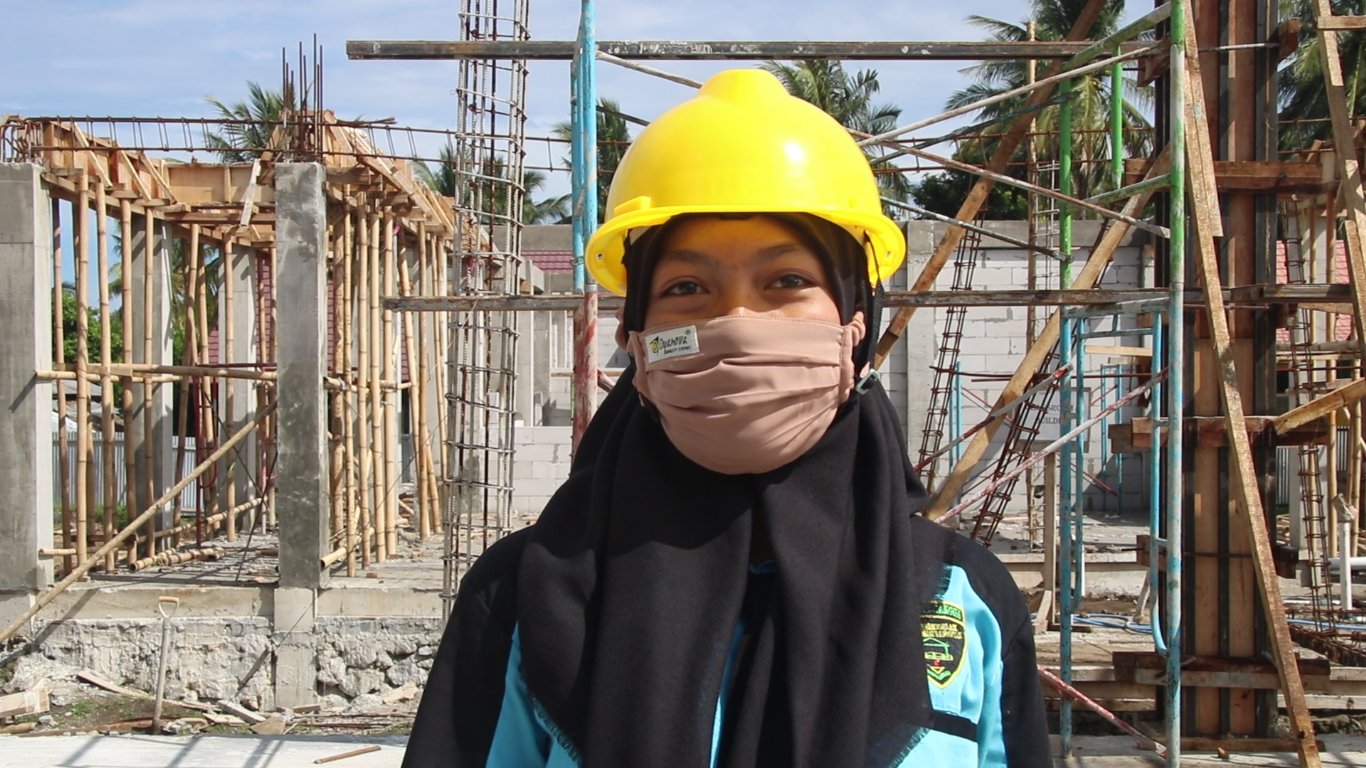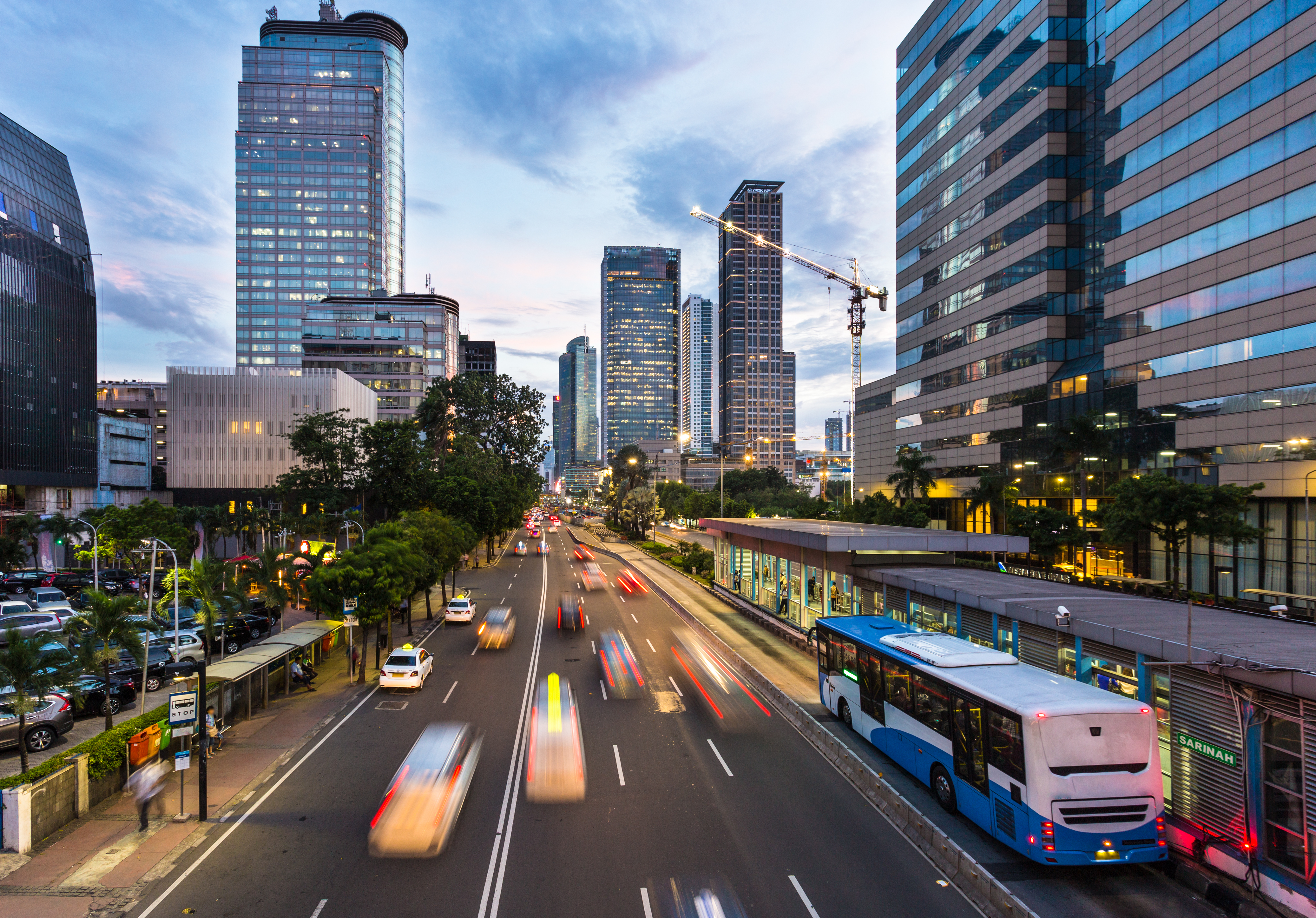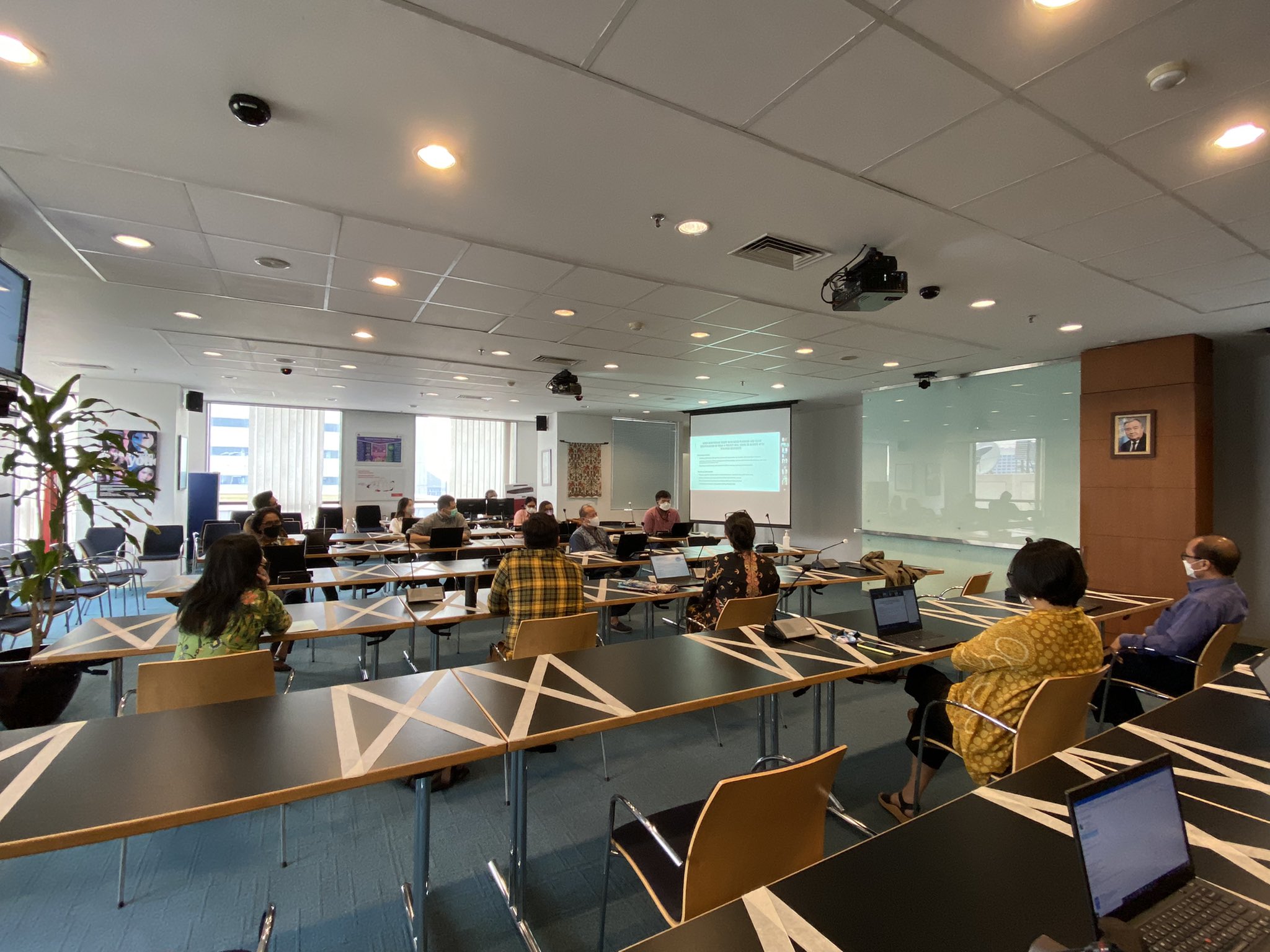Lights for the Malaringgi Communities
November 8, 2023

Malaringgi, a coastal village situated in the southeastern part of Southeast Sulawesi, has a geographical challenge in terms of accessibility. The village can only be reached via the sea route as it is geographically isolated. This isolation has persisted for a long period, resulting in the unavailability of electricity access for the community. Notably, the extending of the electrical grid to Malaringgi is unfeasible due to the considerable financial resources required.
UNDP held a joint inspection with the Korean International Cooperation Agency (KOICA), the Ministry of Energy and Mineral Resources (MEMR), and the regional government of Southeast Sulawesi to observe the infrastructure of the solar power plant built by the ACCESS Project in Malaringgi from 1-4 October 2023. The joint inspection, under the ACCESS project, aims to monitor construction progress and to prepare for post-construction activities, including commissioning, SLO, and asset handover. Additionally, the team engaged in meetings with local stakeholders and communities to discuss infrastructure site verification, BUMDes activities, and training/certification follow-ups.
One of the significant milestones achieved within the project is the near completion of solar power plant construction in Southeast Sulawesi to approximately 80%. The collaboration among stakeholders has been instrumental in advancing the construction. From the initial site survey in 2022, to the completion of the Detail Engineering Design (DED), procuring components, clearing customs, and ongoing civil construction, collaboration has been a key driver of the progress success.
During the inspection, the team discussed with the local people the progress and the future of the solar power plant in the village. The residents expressed their expectations for the coming of electricity and their hope for the benefits of the solar power plant construction. "We are not able to get electricity for a long period. So far, we have tried to light our house at night with other available options that are generally not efficient. We are thrilled and are waiting for the coming of electricity in our hamlet with this built solar power plant," said Idul, the local people in Malaringgi Village.
Andi Aziz, the Head of Provincial EMR, emphasized the necessity of collaborative efforts, "we will need to work collaboratively with every party concerned with electricity issues. The collaboration with UNDP's ACESS Project is an effort to provide electricity to communities as the locations selected are the ones not included in the Special Allocation Fund (Dana Alokasi Khusus/ DAK) proposal to The Ministry of Energy and Mineral Resources in the previous years," he said.
Despite the six per cent annual electricity demand growth, approximately 9.8 million people in the country still need more access to electricity. The ACCESS project's primary goal is to provide equitable and sustainable access to essential services, enhancing the livelihoods of vulnerable communities. It will achieve this by addressing rural electrification by constructing solar power plants in 23 locations across four Indonesian provinces (Central Kalimantan, West Sulawesi, Southeast Sulawesi, and East Nusa Tenggara). This approach simultaneously promotes clean energy access and addresses energy inequality. The project is funded by the Korean International Cooperation Agency (KOICA) Indonesia.

Overall, the ACCESS project aims to install 1.2 MW off-grid power plants capable of supplying electricity to approximately 20,000 residents in remote villages across four target provinces. The program serves as a model for a rural development strategy and approach through an environmentally conscious approach.
Urip, the National MEMR staff, said during the inspection that with the solar power plant infrastructure nearly complete, communities will soon enjoy lighting day and night. "The MEMR supports the development of local capacity. We will assist local operators through its network and is open to accommodating any training initiatives initiated by the Regional Government that ACCESS operators can partake in,” he said.
Maintaining a communal solar power plant in the post-construction phase presents a multifaceted challenge. It demands a high level of technical expertise to ensure the efficient operation of the plant. Solar power plants require skilled technicians and engineers who can monitor and troubleshoot the systems, as well as conduct routine maintenance. Other challenges include budget constraints, which can be particularly daunting in economically disadvantaged communities, environmental factors such as harsh weather conditions, heavy rainfall, hail, or extreme heat, vandalism (theft, disruption, and security measures), and battery health.
"The real challenge after reconstruction finished is when communities need to manage the power plant daily," said Deogho Lee from the Korean Institute for Development Strategy (KDS) during the discussion with the inspection team on the field. Verania Andria, technical advisor for Renewable Energy UNDP Indonesia emphasized the strategy to ensure long-term benefits. "Along with construction and training for the local community, local institutions have been established to ensure that the rural electrification program is sustainable. We work together with relevant parties at the district, provincial, and national level to empower the local institution,"
Park Soo Young, the Deputy Country Director of KOICA resumed the joint visit, "The solar power plant (PLTS) is intended to serve the basic needs of the community. In the future, it is expected that the solar power plant will align with the utility grid to expand its benefits to broader communities."
Written by Sugiyanto
Edited by Enggi Dewanti

 Locations
Locations

















